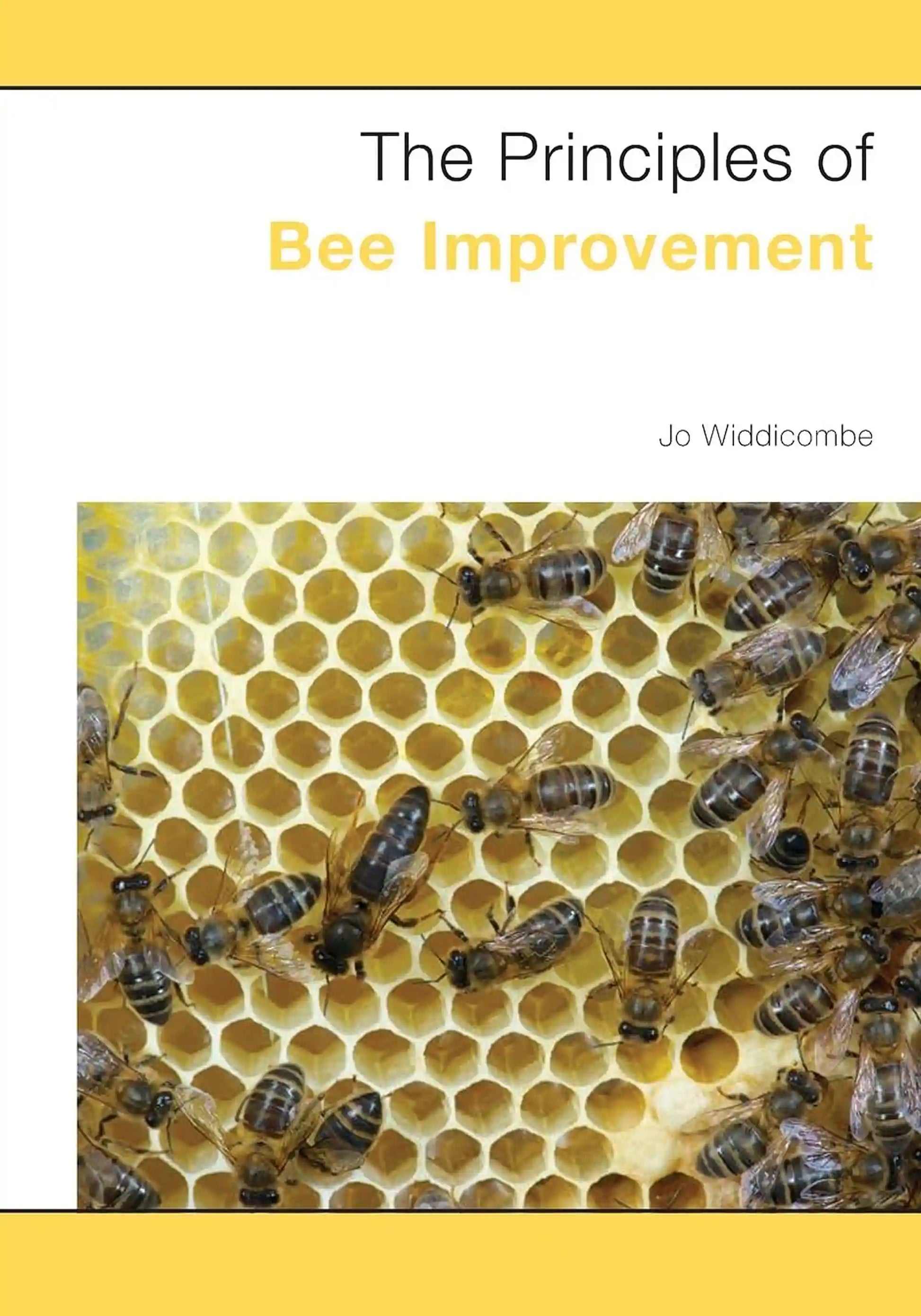The Principles of Bee Improvement, Widdicombe

The Principles of Bee Improvement
The Principles of Bee Improvement offers a practical approach and is an attempt to lay down guidelines which are true and applicable to beekeepers in any circumstance. Rather than searching the country, or the world, for the perfect bee to breed from, this book explains how to select and improve bees from the local bee population. It discusses the problems of importation, the use of natural and artificial selection, assessment of colonies and selection within a strain. By following these methods, the standards of our bees can be raised, producing gentle, hardy and productive bees.
Jo Widdicombe, B.Sc. (Hons.) Environmental Science, has been beekeeping for over 30 years and has been a member of BIBBA for more than 25 years, serving on the BIBBA Committee. Jo worked as a Seasonal Bee Inspector for 5 years and is a Bee Farmer in Cornwall running over 100 colonies.
VIEW Contents
- The Theory of Bee Improvement
- The Practical Aspects of Bee Improvement
- Assessment of stock (i) behavioural characteristics
- Assessment of stock (ii) selecting within a strain
- Record keeping
- Queen rearing methods
- Queen mating -the use of nucs and mini-nucs
- Queen mating -the role and importance of the drone
- Working as a group
- Summary of 'The Principles of Bee Improvement'
- Conclusion
- Appendix (i)
- Appendix (ii)
- References
- Acknowledgements
- Index
VIEW Book Review
Reviewed by Roger Patterson Published Wisborough Green Beekeepers Association.
The improvement of honey bees is a subject that is not often taken seriously, but in my opinion is a topic that should be given much more attention by all beekeepers. Bees are effectively livestock, but how often are beekeepers encouraged to assess their colonies with a view to improving them? How often do we see articles in magazines? How many lectures do we hear about improving bees? How often is it taught (or even discussed) at local BKA meetings? How many books are there on the subject? At best it is mentioned briefly in a general beekeeping book, with the often advised "breed from your best colony", without much indication of what that might be. Apart from a few enthusiasts giving lectures, demonstrations and workshops that is about it.
The Principles of Bee Improvement is a recently published book that fills much of that gap. The author is Jo Widdicombe, who has over 30 years beekeeping experience, 5 of them as a Seasonal Bee Inspector. Jo is a bee farmer running more than 100 colonies in Cornwall, so with his own colonies, combined with his experience as a bee inspector he has had the opportunity to inspect a large number of colonies with a wide variety of characteristics. He has probably seen the extremes of good and bad, which many beekeepers don't have the benefit of.
This is not a large book, but I found it very readable and packed with good sound information that is delivered in a way that makes it difficult to lay it down. It covers much that will interest all beekeepers, however many colonies they have, which is some achievement considering the topic.
Quite sensibly it starts with the theory of bee improvement and asks the question "Why bother?" As you would expect from the title, the reader is encouraged to raise their own queens rather than relying on buying them, which often means imported ones that may not suit our conditions, or running the risk of importing diseases - both issues that concern the modern responsible beekeeper. The point is made that many beekeepers simply buy in queens, rather than raising their own, in the belief they are making improvements. Their ability to perform well in our conditions is untested and their docility is often lost in succeeding generations, as many beekeeper have experienced. The question is raised of whether the high losses amongst beginners are due to them being sold bees headed by imported queens rather than the fault of the beekeeper.
The content is well thought out and in a logical progression, with the assessment of stock quite rightly being treated as important by being towards the front of the book, not hidden away at the back. There is a short list of selection criteria and I was delighted to see temper as an important characteristic, before the more usual and predictable productivity.
I like the simple style, with content that I find difficulty arguing with. The kind of bees that are kept is one of the most argued topics in beekeeping, but the author deals with any possibly contentious issues by well argued justifications.
As the title suggests, this book tends to concentrate on the principles of bee improvement, but in my opinion that is it's strength. The techniques required to produce queens with which to make improvements to your bees actually takes up a small part and is very brief, probably not even enough for the beginner to be successful, but as the author states, there is a bewildering amount written elsewhere. I quote from the last paragraph of the preface. "This book deliberately offers a "low-tech" approach, relevant to, and achievable by, all beekeepers" and it does -brilliantly!
In my opinion this book is an absolute gem and is a very good addition to any beekeepers collection. Once read, I believe it will be well thumbed, as the enthusiastic beekeeper will keep referring to it. In a short time I expect it to be seen as a classic and in my view it should be in every local BKA library.
Unavailable